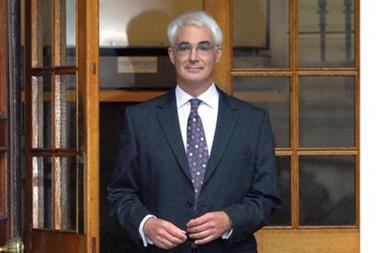Experts say non-encrypted information could be easily hacked
The personal details of all UK families receiving child benefit have been lost by civil servants, according to reports.
The data includes the bank details of some 25m people.
The data is missing after being posted, in breach of the rules, from HM Revenue and Customs to the National Audit Office. The chairman of HMRC has resigned.
Chancellor Alistair Darling said that there was no evidence that the information had been used fraudulently.
Simon Davies, a senior visiting fellow at the London School of Economics, told the Telegraph that the information loss was ‘potentially the worst loss of data in the computer age in this country.’
He said the fact that the computer discs were only password-protected, rather than encrypted, meant that the information could be easily hacked.
Commenting on the news, SNP Treasury Spokesperson, Stewart Hosie MP, said: ‘This loss of confidential information is as a result of the failure of the Government's own systems, with the disks being transported in breach of rules governing data protection. This is a catastrophic failure, and indeed, one can only imagine the danger to national and personal security had this been the loss of 25 million ID card records.’
‘Clearly the Home Office is not the only department that is unfit for purpose, and this scandal is just the latest in a catalogue of Government incompetence. From security breaches over MTAS doctors training records, to the chaos over the tax credit system, this latest loss of personal and financial data is simply unbelievable.’
Paul Skinner, senior ICT underwriting specialist at Chubb Insurance commented on the loss by HMRC: 'This latest loss of disks by HM Revenue and Customs must act as a wake up call to businesses; this incident is a classic example of what can happen if strict practices are not implemented and adhered to.'
'We would also urge companies to ensure they have adequate insurance to cover data breaches and losses such as this and to review their risk management procedures accordingly,' he added.


















No comments yet